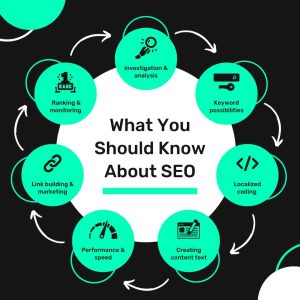Discover the essential things to know before learning SEO. Understand the SEO basics and fundamentals to kickstart your journey in mastering search engine optimization. Learning SEO can be an overwhelming but rewarding journey. With search engines continuously evolving and countless resources available, it’s essential to grasp the basics and fundamentals before diving in. This guide will provide you with the foundational knowledge you need to start your SEO journey confidently.
Understanding SEO

SEO, or Search Engine Optimization, is the practice of optimizing your website to improve its visibility on search engines like Google. The higher your site ranks in search engine results pages (SERPs), the more likely you are to attract organic (non-paid) traffic. SEO involves various strategies and techniques, including keyword research, content creation, on-page optimization, technical SEO, and link building.
Why SEO Matters
Before learning SEO, it’s crucial to understand why it matters. SEO helps increase your website’s visibility, driving more organic traffic and potentially leading to higher conversions and sales. It’s a cost-effective way to reach your target audience and build a long-term online presence. Unlike paid advertising, the benefits of SEO can be long-lasting, providing sustained traffic over time.
SEO Basics: Key Concepts
- Keywords: Keywords are the terms and phrases that people type into search engines. Effective SEO starts with keyword research to identify the words your target audience is searching for. Tools like Google Keyword Planner, Ahrefs, and SEMrush can help you find relevant keywords with high search volume and low competition.
- On-Page SEO: This involves optimizing individual web pages to rank higher in search results. Key elements include:
- Title Tags: The clickable headlines in SERPs. They should be compelling and include your primary keyword.
- Meta Descriptions: The short snippets that describe your page content in SERPs. They should be concise, informative, and include keywords.
- Header Tags: Used to structure your content, from H1 (main heading) to H6 (subheadings). Use them to break up your text and include keywords naturally.
- URL Structure: Keep URLs clean and include relevant keywords.
- Content Creation: High-quality, valuable content is at the heart of SEO. Create content that addresses your audience’s needs and answers their questions. Incorporate keywords naturally and focus on providing informative, engaging, and unique content.
- Technical SEO: This involves optimizing the technical aspects of your website to improve its crawlability and indexability by search engines. Key aspects include:
- Site Speed: Ensure your site loads quickly.
- Mobile-Friendliness: Optimize your site for mobile devices.
- XML Sitemaps: Submit an XML sitemap to help search engines understand your site structure.
- Robots.txt: Guide search engine crawlers on which pages to index.
- Link Building: Acquiring high-quality backlinks from other websites is crucial for SEO. Links from reputable sites signal to search engines that your content is valuable and trustworthy. Strategies include guest blogging, broken link building, and creating shareable content.
SEO Fundamentals: What You Need to Know
Search Engine Algorithms
Understanding how search engines work is fundamental to learning SEO. Search engines use complex algorithms to determine the relevance and ranking of web pages. While the exact algorithms are proprietary, key factors include keyword usage, content quality, backlinks, and user engagement metrics.
User Intent
User intent refers to the reason behind a search query. It’s essential to understand what users are looking for when they enter a keyword. There are four main types of user intent:
- Informational: Seeking information (e.g., “how to bake a cake”).
- Navigational: Looking for a specific website (e.g., “Facebook login”).
- Transactional: Intending to make a purchase (e.g., “buy running shoes”).
- Commercial Investigation: Researching products before buying (e.g., “best laptops 2024”).
By understanding user intent, you can create content that meets their needs and aligns with their search queries.
SEO Tools
Several tools can assist you in your SEO efforts. Some essential tools include:
- Google Analytics: Tracks and reports website traffic.
- Google Search Console: Provides insights into your site’s presence on Google.
- Yoast SEO: A popular WordPress plugin for on-page optimization.
- Moz, SEMrush, and Ahrefs: Comprehensive SEO tools for keyword research, site audits, and competitive analysis.
Common SEO Mistakes to Avoid
- Keyword Stuffing: Overusing keywords can harm your rankings. Aim for natural keyword integration.
- Ignoring Mobile Optimization: With the rise of mobile search, a mobile-friendly site is crucial.
- Neglecting User Experience: A site that is difficult to navigate will have high bounce rates.
- Buying Links: Focus on earning organic, high-quality backlinks instead of purchasing them.
- Not Monitoring Performance: Regularly track your SEO performance to identify areas for improvement.
Learning SEO: Getting Started
Online Courses and Tutorials
Many online courses and tutorials can help you learn SEO. Platforms like Coursera, Udemy, and LinkedIn Learning offer courses ranging from beginner to advanced levels. These courses often cover the fundamentals of SEO, keyword research, on-page and off-page SEO, and technical SEO.
SEO Blogs and Forums
Stay updated with the latest SEO trends and best practices by following industry blogs and forums. Some reputable sources include:
- Moz Blog
- Search Engine Journal
- Neil Patel’s Blog
- Google Webmaster Central Blog
- SEO subreddit (r/SEO)
Engaging with the SEO community can provide valuable insights and tips from experienced professionals.
Practice and Experimentation
The best way to learn SEO is through practice and experimentation. Start by optimizing your website or blog. Implement different strategies, track your results, and learn from your successes and failures. Experiment with various techniques to see what works best for your site.
SEO Certifications
Earning SEO certifications can enhance your credibility and demonstrate your expertise. Some notable certifications include:
Staying Updated with SEO Trends
SEO is an ever-evolving field, and staying updated with the latest trends and algorithm changes is crucial. Follow industry news, attend webinars, and participate in SEO conferences to stay informed. Some emerging trends to watch include:
- Voice Search Optimization: With the rise of voice assistants, optimizing for voice search is becoming increasingly important.
- Artificial Intelligence: AI and machine learning are transforming how search engines rank content.
- Visual Search: Optimizing images for visual search can enhance your SEO efforts.
- Core Web Vitals: Focus on user experience metrics like loading speed, interactivity, and visual stability.
Conclusion
Learning SEO is a journey that requires a solid understanding of the basics and fundamentals. By mastering keyword research, on-page and technical SEO, content creation, and link building, you can build a strong foundation. Avoid common mistakes, stay updated with industry trends, and continuously practice and experiment to refine your skills.
Remember, SEO is not a one-time effort but an ongoing process. With dedication and perseverance, you can become proficient in SEO and significantly enhance your website’s visibility and performance in search engine results. Start your SEO journey today, and watch your online presence grow!
📚 For more insights, check out our SEO services guide.



1 comment
Comments are closed.